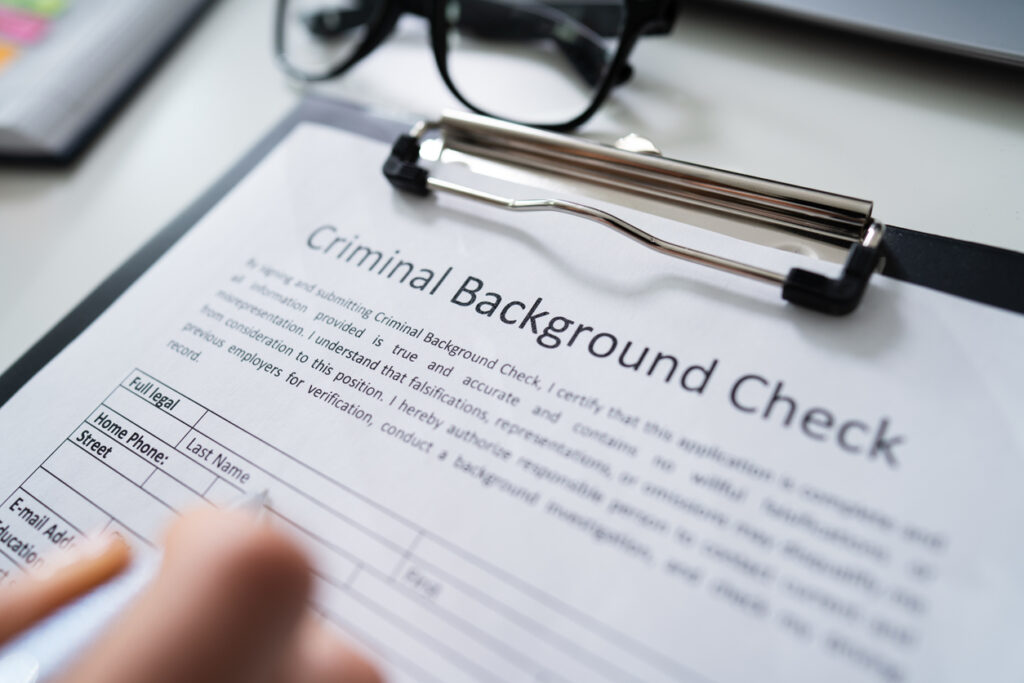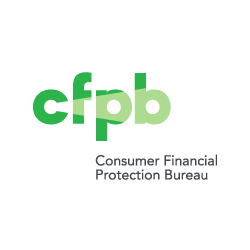 Scenarios involving mixed credit files are all too common today. A mixed credit file, or mis-merged file, can happen when your credit information is commingled with someone else’s on your credit report. For years, the credit bureaus have been told their methods of matching consumer data is fundamentally flawed, but the often-devastating errors keep happening.
Scenarios involving mixed credit files are all too common today. A mixed credit file, or mis-merged file, can happen when your credit information is commingled with someone else’s on your credit report. For years, the credit bureaus have been told their methods of matching consumer data is fundamentally flawed, but the often-devastating errors keep happening.
TRUE STORY from Flitter Milz
A Flitter Milz client was denied an auto loan for a car, despite having perfect credit. When he asked the dealership for his credit report, he was shocked to find a negative collection account belonging to his father, who had a similar name, but different date of birth and SSN. A lawsuit was filed for our client against the collection agency and credit bureaus under the Fair Credit Reporting Act (FCRA) for mixing our client’s file with his dad’s. A federal court awarded our client $360,000 plus attorneys fees for continuing to report inaccurate information on his credit reports.
Common mixed file scenarios
1) A parent’s account appearing on their child’s credit file.
2) A child’s debt negatively effecting the parent’s good credit.
3) A total stranger’s delinquent auto loan appears on an innocent consumer’s credit report simply because they share a similar name or social security number.
4) John Q. Public’s criminal conviction in Ohio is listed on John T. Public’s employment screening report in New Jersey, preventing John T. Public from getting a job.
The impact of mixed credit files
Mixed credit files can have a serious affect on your life.
Credit Denials: Credit files that have been mixed between one consumer and another can lead to credit denials for an auto loan, mortgage, education or other personal loan.
Employment Denials: Errors like these can also cause you not to get a job, promotional or security clearance.
Housing Denial: You can also be denied housing, if a landlord relied on an inaccurate credit report.
Steps to address Mixed Credit Files
If you have experienced a credit denial due to a mixed or mis-merged credit file take the following steps.
Step 1: Obtain current credit reports
Write to the main credit bureaus — Transunion, Experian, and Equifax — to request a current copy of your reports, or visit annualcreditreport.com. You may need to provide proof of identity, such as a current driver’s license, utility bill or pay stub to have the reports sent to you.
Step 2: Review your credit reports for accuracy
Review listings on each report as information may vary from one report to another. If you do not recognize accounts or if the information is incorrect, you will need to take steps to get the errors corrected. Common signs of mixed files include:
– Name spelled incorrectly
– Wrong SSN, addresses, or phone numbers
– Wrong employers listed
– Accounts you do not recognize
– Inquiries you don’t recognize
– Public records or judgments from courts in cities you never lived in
– Criminal records that don’t belong to you
Step 3: Gather denial letters and supporting documents
Collect copies of all denial letters received from creditors, employers, or landlords, and all other documents related to the error.
Step 4: Contact qualified Consumer Law Attorneys
 Attorneys Cary Flitter, Andy Milz and Jody López-Jacobs are nationally recognized consumer protection lawyers with experience to evaluate your credit reporting problem. There is no cost for the legal review. Contact Us Today. Pictured: Attorneys Cary Flitter (center), Andy Milz (left), Jody López-Jacobs (right).
Attorneys Cary Flitter, Andy Milz and Jody López-Jacobs are nationally recognized consumer protection lawyers with experience to evaluate your credit reporting problem. There is no cost for the legal review. Contact Us Today. Pictured: Attorneys Cary Flitter (center), Andy Milz (left), Jody López-Jacobs (right).

 Federal court in Philadelphia rules TransUnion must go to trial
Federal court in Philadelphia rules TransUnion must go to trial Errors on your credit reports can derail your finances, and sometimes prevent you from obtaining the credit you may need. By checking your credit reports regularly with the three main bureaus — Transunion, Experian and Equifax — you can make sure negative entries and inaccurate listings don’t stand in your way of getting the car loan, mortgage, job or apartment you deserve. Take these steps to work towards your financial freedom.
Errors on your credit reports can derail your finances, and sometimes prevent you from obtaining the credit you may need. By checking your credit reports regularly with the three main bureaus — Transunion, Experian and Equifax — you can make sure negative entries and inaccurate listings don’t stand in your way of getting the car loan, mortgage, job or apartment you deserve. Take these steps to work towards your financial freedom.
 Credit reports show the history of credit accounts and illustrate whether a consumer is a good credit risk. Consumers must review their reports for accuracy and take steps to correct inaccurate information. Common credit reporting problems are:
Credit reports show the history of credit accounts and illustrate whether a consumer is a good credit risk. Consumers must review their reports for accuracy and take steps to correct inaccurate information. Common credit reporting problems are: All it takes is someone with the same or similar name, birthdate, address, or other matching identifying information to have a stranger’s record inaccurately mixed with yours. Their DUI, their theft conviction, or their sex offence can then show up on YOUR report. It’s no surprise then that bad background checks for employment, rent, or security clearance can ruin someone’s livelihood and reputation in an instant.
All it takes is someone with the same or similar name, birthdate, address, or other matching identifying information to have a stranger’s record inaccurately mixed with yours. Their DUI, their theft conviction, or their sex offence can then show up on YOUR report. It’s no surprise then that bad background checks for employment, rent, or security clearance can ruin someone’s livelihood and reputation in an instant.
 The Consumer Financial Protection Bureau (CFPB) recently published an advisory warning that
The Consumer Financial Protection Bureau (CFPB) recently published an advisory warning that  More than 90% of prospective employers, landlords, insurance companies and banks use background check data as part of their application process. These companies must have a legally permissible purpose to obtain a copy of a consumer’s background report when evaluating the consumer for credit, insurance, housing, or employment decisions. The consumer is entitled to a copy of the background check report used to evaluate his or her application.
More than 90% of prospective employers, landlords, insurance companies and banks use background check data as part of their application process. These companies must have a legally permissible purpose to obtain a copy of a consumer’s background report when evaluating the consumer for credit, insurance, housing, or employment decisions. The consumer is entitled to a copy of the background check report used to evaluate his or her application. Background reports include information such as, employment history, credit information and legal problems. In some cases, social media accounts may show up. The more data listed in a background check could mean a greater possibility for error. As a result, the consumer could be denied a job, housing, insurance or credit. Just one error on a background report can cause significant harm. Procedures for maintaining and dispensing accurate information are critical. Background reports must ensure proper identification of the applicant, plus accurate data related to the applicant. Disclaimers by background reporting companies do not cure permissible violations. Instead, they could violate a person’s privacy, which is strictly prohibited under the FCRA.
Background reports include information such as, employment history, credit information and legal problems. In some cases, social media accounts may show up. The more data listed in a background check could mean a greater possibility for error. As a result, the consumer could be denied a job, housing, insurance or credit. Just one error on a background report can cause significant harm. Procedures for maintaining and dispensing accurate information are critical. Background reports must ensure proper identification of the applicant, plus accurate data related to the applicant. Disclaimers by background reporting companies do not cure permissible violations. Instead, they could violate a person’s privacy, which is strictly prohibited under the FCRA. When a background check is required, the prospective employer or landlord must obtain written permission from the applicant to request a report. A Disclosure Notice and Authorization form must be filled out and signed by the applicant, then submitted to the background check company. Most authorization forms require the applicant’s full name, date of birth, social security number, current zip code, phone number and email address. Screening for some types of employment may require additional information, such as motor vehicle reports, employment verifications or international criminal checks.
When a background check is required, the prospective employer or landlord must obtain written permission from the applicant to request a report. A Disclosure Notice and Authorization form must be filled out and signed by the applicant, then submitted to the background check company. Most authorization forms require the applicant’s full name, date of birth, social security number, current zip code, phone number and email address. Screening for some types of employment may require additional information, such as motor vehicle reports, employment verifications or international criminal checks. The attorneys at Flitter Milz have extensive experience dealing with violations of the Fair Credit Reporting Act. If a background checking company fails to correct information on your report, and you’ve suffer the loss of a job, rental, or other damages, you may be able to sue the company for money – and your legal fees will be paid by that violating reporting bureau.
The attorneys at Flitter Milz have extensive experience dealing with violations of the Fair Credit Reporting Act. If a background checking company fails to correct information on your report, and you’ve suffer the loss of a job, rental, or other damages, you may be able to sue the company for money – and your legal fees will be paid by that violating reporting bureau.  Credit reports must be kept accurate.
Credit reports must be kept accurate. The website, annualcreditreport.com, is the quickest way to access reports. By writing to the three main credit bureaus – Transunion, Experian and Equifax — to
The website, annualcreditreport.com, is the quickest way to access reports. By writing to the three main credit bureaus – Transunion, Experian and Equifax — to  After reviewing your credit report for accuracy, if there are errors listed you may need to write to the lender, creditor, collection agency or other type of data furnisher to request updated information on your account. Obtaining verification of your account status from these companies can provide useful evidence when your dispute is investigated by the credit bureau and evaluated for accuracy.
After reviewing your credit report for accuracy, if there are errors listed you may need to write to the lender, creditor, collection agency or other type of data furnisher to request updated information on your account. Obtaining verification of your account status from these companies can provide useful evidence when your dispute is investigated by the credit bureau and evaluated for accuracy. Although the credit bureaus accept disputes online and by phone, consumers must be cautious. These methods of disputing could present problems.
Although the credit bureaus accept disputes online and by phone, consumers must be cautious. These methods of disputing could present problems. Dispute letters should be sent to the credit bureaus by Certified Mail, Return Receipt. Be sure to keep a copy of the dispute letter and all supporting documents enclosed with your letter, along with all mailing receipts from the post office.
Dispute letters should be sent to the credit bureaus by Certified Mail, Return Receipt. Be sure to keep a copy of the dispute letter and all supporting documents enclosed with your letter, along with all mailing receipts from the post office. The Fair Credit Reporting Act
The Fair Credit Reporting Act  Flitter Milz is a consumer protection law firm that addresses accuracy and privacy violations of the Fair Credit Reporting Act. If there are uncorrected errors on a consumer’s credit reports, the consumer’s legal rights may have been violated. The attorneys at Flitter Milz evaluate consumer’s credit reports for errors and identify steps to correct them. If a consumer’s credit has been damaged, there could be a violation of the law.
Flitter Milz is a consumer protection law firm that addresses accuracy and privacy violations of the Fair Credit Reporting Act. If there are uncorrected errors on a consumer’s credit reports, the consumer’s legal rights may have been violated. The attorneys at Flitter Milz evaluate consumer’s credit reports for errors and identify steps to correct them. If a consumer’s credit has been damaged, there could be a violation of the law.  Consumer credit is when credit is advanced to a consumer for the purchase of personal or household goods or services. The system for extension of credit allows consumers to borrow money, or incur debt, and to defer repayment of that money over time.
Consumer credit is when credit is advanced to a consumer for the purchase of personal or household goods or services. The system for extension of credit allows consumers to borrow money, or incur debt, and to defer repayment of that money over time. Having
Having  Consumers may explore options to finance the purchase by contacting banks, credit unions and financial institutions. The terms for borrowing money may vary from one lender to another. After submission of a credit application, lenders take steps to evaluate the borrower’s creditworthiness. Typically, a credit application triggers a
Consumers may explore options to finance the purchase by contacting banks, credit unions and financial institutions. The terms for borrowing money may vary from one lender to another. After submission of a credit application, lenders take steps to evaluate the borrower’s creditworthiness. Typically, a credit application triggers a  Borrowers must be prepared for the lender to approve or
Borrowers must be prepared for the lender to approve or  A credit reference is one of the methods lenders and service providers use to determine a borrower’s creditworthiness. Credit references can include your bank, previous landlords, employers, or companies whose bills you’ve paid regularly. Depending on the type of application, it is best to submit the best reference for the situation. Typically, this person or company would improve the borrower’s chances for approval for the type of loan that is sought.
A credit reference is one of the methods lenders and service providers use to determine a borrower’s creditworthiness. Credit references can include your bank, previous landlords, employers, or companies whose bills you’ve paid regularly. Depending on the type of application, it is best to submit the best reference for the situation. Typically, this person or company would improve the borrower’s chances for approval for the type of loan that is sought.  A car purchase is one of the most exciting purchases a consumer makes. But let’s face it, cars are expensive and you have to figure out how to pay for them.
A car purchase is one of the most exciting purchases a consumer makes. But let’s face it, cars are expensive and you have to figure out how to pay for them. Before visiting the dealership, consumers must review their finances and evaluate payment options. Informed buyers allow for making the best car buying decisions. Car salespeople are known to pressure potential buyers in to selecting vehicles from their lot — often ones the consumer may not want or be able to afford.
Before visiting the dealership, consumers must review their finances and evaluate payment options. Informed buyers allow for making the best car buying decisions. Car salespeople are known to pressure potential buyers in to selecting vehicles from their lot — often ones the consumer may not want or be able to afford. the consumer’s credit accounts, including balances and payment history. When reports reflect incorrect information, lenders may deny applications for credit.
the consumer’s credit accounts, including balances and payment history. When reports reflect incorrect information, lenders may deny applications for credit. institutions review the consumer’s credit reports and scores in the process of determining whether to extend credit or not. Various factors are considered in the evaluation process:
institutions review the consumer’s credit reports and scores in the process of determining whether to extend credit or not. Various factors are considered in the evaluation process: Shop for the Financing
Shop for the Financing The three main national credit bureaus — Trans Union, Equifax, and Experian — have agreed to make changes in the reporting of medical debt. As of July 1, 2022, settled medical debt that would normally remain on credit reports for up to 7 1/2 years should come off the report. As a result, consumers may see an increase in their credit score, a benefit which can open doors to borrowing at more favorable rates for housing, loans and credit cards.
The three main national credit bureaus — Trans Union, Equifax, and Experian — have agreed to make changes in the reporting of medical debt. As of July 1, 2022, settled medical debt that would normally remain on credit reports for up to 7 1/2 years should come off the report. As a result, consumers may see an increase in their credit score, a benefit which can open doors to borrowing at more favorable rates for housing, loans and credit cards. Let’s face it. Most medical debt is incurred unexpectedly. Patients visit doctors or seek medical treatment because they are sick or have had an injury. Due to the high cost of healthcare, many Americans have difficulty paying expensive medical bills to hospitals, physicians, labs and other medical providers.
Let’s face it. Most medical debt is incurred unexpectedly. Patients visit doctors or seek medical treatment because they are sick or have had an injury. Due to the high cost of healthcare, many Americans have difficulty paying expensive medical bills to hospitals, physicians, labs and other medical providers. Unfortunately, unpaid medical debt may be forwarded to a collection agency or law firm collector. Once in collection, negative tradelines appear on credit reports and credit scores may drop. Consumers then begin to feel the effects of a negative credit rating.
Unfortunately, unpaid medical debt may be forwarded to a collection agency or law firm collector. Once in collection, negative tradelines appear on credit reports and credit scores may drop. Consumers then begin to feel the effects of a negative credit rating. Attorney Andy Milz states, “Here at Flitter Milz, PC, we strongly believe medical debt should not be reported at all. Unlike a mortgage, credit card, or car loan, medical debt does not represent a financial choice, but is often a result of an emergency or hardship. And, even for the majority of consumers with some form of health insurance, getting the insurance company to pay the bill in its entirety is always a challenge. Inability to pay medical debts should not weigh down a person’s creditworthiness. Unfortunately, until now, health care providers, medical debt collectors, and the credit bureaus have been allowed to report this negative information.”
Attorney Andy Milz states, “Here at Flitter Milz, PC, we strongly believe medical debt should not be reported at all. Unlike a mortgage, credit card, or car loan, medical debt does not represent a financial choice, but is often a result of an emergency or hardship. And, even for the majority of consumers with some form of health insurance, getting the insurance company to pay the bill in its entirety is always a challenge. Inability to pay medical debts should not weigh down a person’s creditworthiness. Unfortunately, until now, health care providers, medical debt collectors, and the credit bureaus have been allowed to report this negative information.”
 Similar to purchasing other items for the home, when considering solar panels, homeowners must shop around, get quotes, and investigate solar panel companies to compare one offer from another. There are a wide variety of products on the market with varying levels of efficiency, durability, reliability, output and design. As well, there are a number of solar companies and installers — some are better than others. Check the company’s reputation to see if complaints been filed against them with the Federal Trade Commission, State Attorney General, or Better Business Bureau? Also, searching court dockets for lawsuits that have been filed against solar panel companies or their finance companies may provide insight to issues that other consumer’s have faced involving solar transactions.
Similar to purchasing other items for the home, when considering solar panels, homeowners must shop around, get quotes, and investigate solar panel companies to compare one offer from another. There are a wide variety of products on the market with varying levels of efficiency, durability, reliability, output and design. As well, there are a number of solar companies and installers — some are better than others. Check the company’s reputation to see if complaints been filed against them with the Federal Trade Commission, State Attorney General, or Better Business Bureau? Also, searching court dockets for lawsuits that have been filed against solar panel companies or their finance companies may provide insight to issues that other consumer’s have faced involving solar transactions. of the benefits of solar power, the consumer is presented an iPad or tablet to sign, believing their signature gives the salesman permission to evaluate the property for panels. However, the signature, or initials, on an iPad may authorize the solar company, without the consumer’s knowledge, to:
of the benefits of solar power, the consumer is presented an iPad or tablet to sign, believing their signature gives the salesman permission to evaluate the property for panels. However, the signature, or initials, on an iPad may authorize the solar company, without the consumer’s knowledge, to: Solar loans work like other home improvement loans. The loan is taken out through a finance company with monthly payments made to the lender for the purchase of the system. Just like researching the solar company, homeowners must research the best way to finance the solar power system. There are several companies, such as Goodleap, Mosaic, or Sunlight Financial, that offer loans for solar panels. But ask yourself, which one offers the best terms for me?
Solar loans work like other home improvement loans. The loan is taken out through a finance company with monthly payments made to the lender for the purchase of the system. Just like researching the solar company, homeowners must research the best way to finance the solar power system. There are several companies, such as Goodleap, Mosaic, or Sunlight Financial, that offer loans for solar panels. But ask yourself, which one offers the best terms for me? to-door sales companies who sometimes entice people to sign up for “free” solar panels. Hundreds of consumers have complained about Loanpal/Goodleap’s business practices to the Better Business Bureau. The Better Business Bureau has rated Loanpal an “F.” From customer reviews, Loanpal received only one out of five stars. In fact, some consumers complain that they never saw or signed a contract. When faced with accusations that the solar panel salesperson engaged in fraud — such as signing up a consumer for a loan without their knowledge or consent — Goodleap has attempted to distance itself from the solar panel company.
to-door sales companies who sometimes entice people to sign up for “free” solar panels. Hundreds of consumers have complained about Loanpal/Goodleap’s business practices to the Better Business Bureau. The Better Business Bureau has rated Loanpal an “F.” From customer reviews, Loanpal received only one out of five stars. In fact, some consumers complain that they never saw or signed a contract. When faced with accusations that the solar panel salesperson engaged in fraud — such as signing up a consumer for a loan without their knowledge or consent — Goodleap has attempted to distance itself from the solar panel company.
 Read more below:
Read more below: There are a variety of reasons why credit files get mixed. With the amount of information handled by creditors and the credit bureaus, mistakes are bound to happen. For example, information from an application may be keyed into a file incorrectly. Digits on a social security number may be transposed, or a name misspelled from an application. Those errors can pass from the original creditor through to the credit bureau. Or, the credit bureau mistakenly may combine credit files of two or more different consumers into one file. Unfortunately, the errors may not be discovered until the consumer reviews his or her report…usually after applying for new credit.
There are a variety of reasons why credit files get mixed. With the amount of information handled by creditors and the credit bureaus, mistakes are bound to happen. For example, information from an application may be keyed into a file incorrectly. Digits on a social security number may be transposed, or a name misspelled from an application. Those errors can pass from the original creditor through to the credit bureau. Or, the credit bureau mistakenly may combine credit files of two or more different consumers into one file. Unfortunately, the errors may not be discovered until the consumer reviews his or her report…usually after applying for new credit. If you believe someone else’s information has been mixed with or merged onto your credit file, a
If you believe someone else’s information has been mixed with or merged onto your credit file, a  The reporting bureau has 30 days to respond to your written dispute. If errors are not corrected, you may need to send a second dispute to that bureau, and possibly provide additional documentation. Or, you may need to write to the underlying creditor, explain the problem and request corrected information be sent to the reporting bureau.
The reporting bureau has 30 days to respond to your written dispute. If errors are not corrected, you may need to send a second dispute to that bureau, and possibly provide additional documentation. Or, you may need to write to the underlying creditor, explain the problem and request corrected information be sent to the reporting bureau. The
The 






